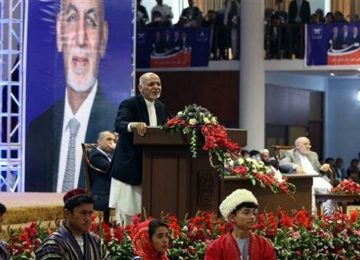In its ongoing crackdown against proscribed outfits, Pakistan’s Ministry of Interior has confiscated all of the assets and properties of Jamaat-ud-Dawa (JuD) and its charity arm, the Falah-e-Insaniat Foundation (FIF), in Azad Jammu and Kashmir (AJK) and Gilgit-Baltistan (GB), and 148 assets in Punjab. The crackdown came after Pakistan was placed on the ‘grey list’ of Financial Action Task Force (FATF) for not doing enough to comply with terrorist-funding regulations, following which the Senate Committee on Interior sought a briefing by the Ministry of Interior and Foreign Affairs on what measures the government had taken.
As per United Nations Security Council’s resolution number 1267, Lashkar-e-Taiba (LeT), the JuD and the FIF, had been placed on the sanction list. In a Financial Action Task Force (FATF) meeting held in Paris on February 20, Pakistan was given three months to satisfy the watchdog with regard to taking measures that were required.
Interior Secretary Arshad Mirza told a Senate Committee in a meeting – presided over by Senator Rehman Malik held at the Pakistan Institute for Parliamentary Services (PIPS) hall on March 8 – that, in addition, the Islamabad Capital Territory (ICT) had also confiscated three immovable assets of JuD and FIF, including hospitals and dispensaries, while alongside the Pakistan Red Crescent had been directed to take over seven ambulances associated with them.
Besides these measures, Pakistan’s Anti-Terrorism Act (ATA) has also been amended through a presidential order for taking action against the three banned outfits while a checklist has also been prepared in consultation with multiple stakeholders in this connection and circulated amongst them for taking action against the banned outfits.
In addition to these measures, the weapon licenses of all persons associated with these organizations have been canceled while they have been stopped from raising funds as well. The passports of all persons associated with these organizations have also been canceled and they are barred from flying abroad. In all of these actions, the interior secretary stated that the finance ministry was the lead agency. A meeting with the finance ministry is expected to be held next week where representatives of the Financial Action Task Force would also be present.
Further, the senators in the committee strongly criticized the policy of the successive governments about countering terrorism and radicalization and urged the government to look inward and take corrective measures now. Senator Shahi Syed was of the view that Pakistan earned a bad name for fighting the CIA-sponsored Jihad in the 1980s, emphasizing that it was incumbent on Ulema-e-Haq (the true scholars) to confess that a mistake had been committed in this connection. Further, the committee chairman Rehman Malik passed directives that all measures that the government had taken so far in this connection would be made public through the media.
© Center for Research and Security Studies (CRSS) and Afghan Studies Center (ASC), Islamabad.








